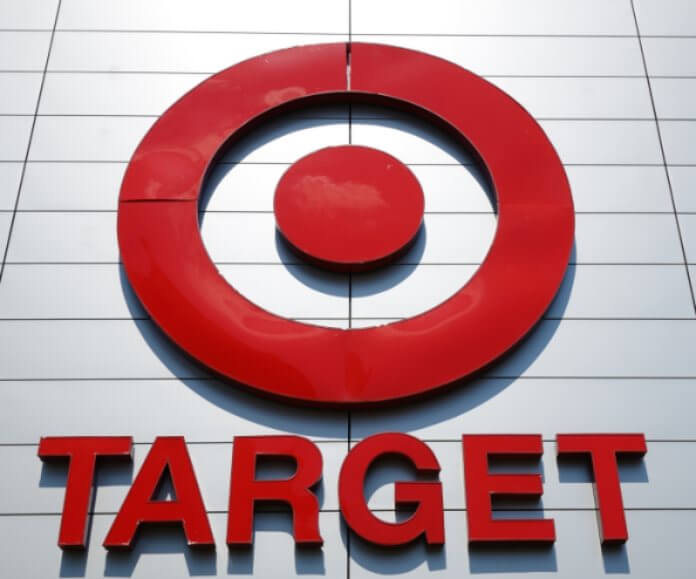Target (NYSE:TGT) reported a dip in second-quarter sales, weighed down by shoppers’ inflation concerns and a negative reaction by some customers to its Pride items, which was widely highlighted on social media.
Despite lowering earnings forecasts for the year, Target stock gained nearly 6% in early morning trade Wednesday.
The Minneapolis store anticipates high interest rates, which make credit cards more expensive to use, and increased food prices to continue to put a pressure on customers, and the chain lowered its profit forecast for the year on Wednesday. It also anticipates revenues to fall for the rest of the year. Target also mentioned the termination of the student loan moratorium, which had given one-time college students a bit more financial breathing room, in decreasing its projection.
Profit came in beyond estimates, though, as Target brought inventory in line with customers’ cautious spending on discretionary items.
Target is one of the first large U.S. retailers to announce quarterly financial results, and the impact of higher prices and increased interest on its customers will be closely watched ahead of a slew of quarterly reports from firms such as Walmart and other shops.
Higher food and household essentials prices, according to CEO Brian Cornell, are taking a larger chunk out of consumers’ wages, who have also cut back on purchasing some things in favor of travel or spending time away from the house in other ways.
“Guests are out at concerts,” Cornell said during a press conference on Tuesday. “They’re going to see a movie.” They’ve watched ‘Barbie.’ They are enjoying those experiencing moments, and they are buying discretionary things with great attention.”
Other retailers are seeing the same phenomenon.
The nation’s largest home improvement company, Home Depot, reported Tuesday that sales had continued to fall after soaring in recent years. Big-ticket products, which may necessitate financing, were particularly heavily hit.
Analysts will be watching to see if the same pressures are affecting the results of other retailers reporting this week, including Walmart, the nation’s largest, on Thursday. Later this month, Macy’s, Kohl’s, and Nordstrom will report quarterly results.
The United States announced this week that Americans increased their spending last month, but increasing interest rates are dragging on economic activity that rely heavily on credit, such as home, vehicle, furniture, and electronics sales.
Target is more vulnerable than other big-box retailers such as Walmart. According to Target’s most recent annual financial report, discretionary items such as toys, apparel, and technological devices account for more than half of the company’s annual revenues.
Target also encountered a one-of-a-kind issue during the most recent quarter, becoming one of the corporations targeted for its LGBTQ+ support, including its displays of Pride Month products. After meeting animosity from some consumers who accosted personnel and toppled over displays, it removed some items and made other changes. Company executives claimed this week that they couldn’t say how much of a negative impact the unfavorable reaction had on their business, but that once the improvements were implemented, the occurrences diminished. Overall sales increased in July compared to June.
Cornell stated that the company has learnt from the response and will be more careful in its merchandise offers during its heritage months, which honor diverse ethnic and oppressed groups.
“We’ll continue to celebrate Pride and other heritage moments, which are just one part of our commitment to supporting diverse teams and guests,” Cornell said to reporters. “However, as we navigate an ever-changing operating and social environment, we’re applying what we’ve learned to ensure that we’re staying close to our guests and their expectations of Target.”
Target earned $835 million in the fiscal quarter that ended July 29, or $1.80 per share. This compares to $183 million, or 39 cents per share, in the prior year.
Sales dropped nearly 5% to $24.77 billion as customers prioritized necessities over frivolous products. The quarter’s business was also harmed since results were compared to strong discounting in the previous period, which was intended to remove unwanted inventory as shoppers pulled back.
According to FactSet, analysts expected profits of $1.43 per share on revenues of $25.18 billion.
Inventory was 17% lower at the end of the second quarter than the previous year, reflecting a 25% fall in discretionary categories such as fashion and home furnishings.
Comparable sales (those from stores or digital channels open for at least a year) declined 5.4% in the most recent quarter. Sales were flat in the fiscal first quarter.
Target now expects comparable sales to fall in the mid-single digits for the rest of the year. It also expects full-year adjusted profits per share of $7 to $8, up from $7.75 to $8.75 before. According to FactSet, analysts expected $7.72 per share for the year.
Target Stock
Target stock rose $7 in early trading to $132.44.
Featured Image: Freepik

















